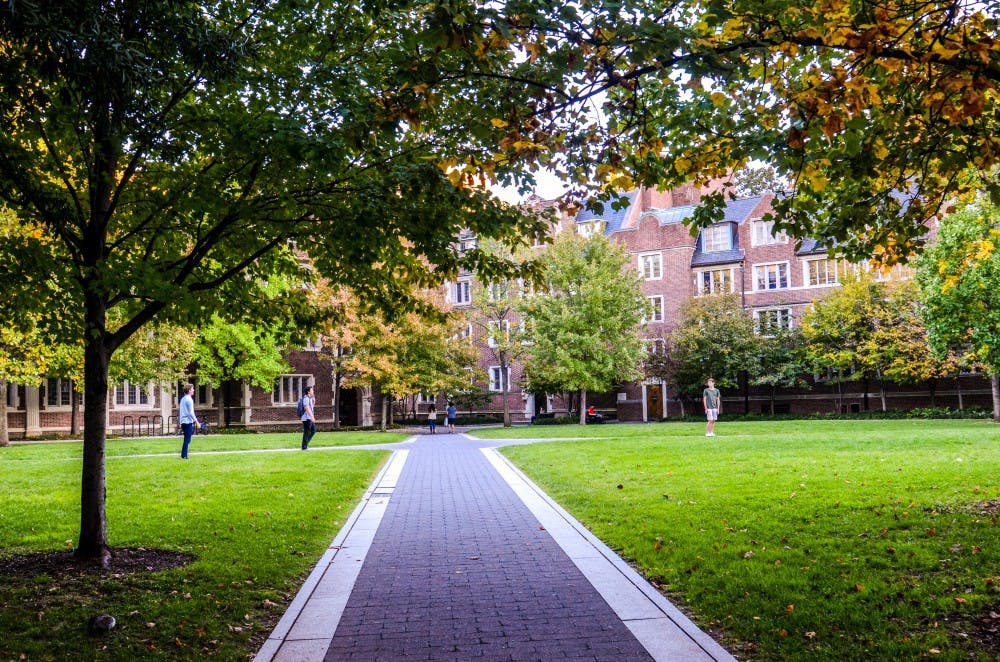The admissions process has begun, and Penn has already started preparations to welcome the Class of 2022. When these incoming freshmen complete their housing applications, many will apply to join one of 18 residential programs, often to find like-minded new friends or to secure a spot in their dormitory of choice. But not all applicants will be accepted.
The themes of these residential programs are diverse, spanning topics such as "Penn Women in Leadership" to the "Study of Infectious Diseases." All the programs, which are housed in specific dormitories, aim to bring students together to interact with people of similar interests and participate in relevant events throughout the year.
All programs require an application, which typically consists of an essay of around 500 words. Some of these programs are more selective than others, with some falling below their maximum capacity because of a lack of applicants. Students say that the number of people accepted into their programs often changes how invested they are in it.
College freshman and member of the Music and Social Change program Ben Wasman said he applied to the program because he thought the program was niche enough that it would increase his chances of getting into the Quad. His program is located in Fisher-Hassenfeld College House.
“I had an interest in the program for sure and care a lot about it," Wasman said. "But I also knew it would help me get into the housing I wanted."

His program, which includes a half-credit seminar and a community service component, was capped at 19 students, according to the College Houses & Academic Services website. The program currently has 20 enrolled students, Dean of Fisher-Hassenfeld College House Ebonish Lamar said.
RELATED:
Some students say residential programs are better in theory than in practice
This new program at Penn provides mentorship for leaders of minority institution
“If you express interest in the topic in your essay, there’s a pretty good chance you’ll get in," Wasman said, "It’s a pretty specific program."
Wasman added the program has helped him meet people in his hall whom he “might not normally get to know.”
Neil Gramopadhye, College freshman and member of the Research, Innovation and Entrepreneurship program, said members of his program are also close, which he thinks is related to the lower acceptance rate.
“Our leaders told us the acceptance rate is around 30 percent,” Gramopadhye said.
Gramopadhye added that even though the program reached its maximum capacity of 50, the group has stayed close.
“In the dining hall, if you see one person from the program walking around, that probably means six others are there as well,” Gramopadhye said.
However, not all students accepted into a more selective program said they feel it has significantly improved their freshman living experiences. College freshman Aditya Rao is a part of the Integrated Studies Program — the Riepe College House residential program that is mandatory for all freshmen who are Benjamin Franklin Scholars in the College. These students participate in a four-year academic program focusing on interdisciplinary education.
Rao said his program could have done more to connect its students, which is at its maximum capacity of 74 students. He said he does not feel like he has had the opportunity to meet everyone in the program, citing the size of the program as the main issue.
“There really aren’t that many social events, so you really can’t get to know everyone," Rao said. "We’ve had one mixer. If you want to meet people in different halls, you’d probably have to have class together.”
College freshman and Goldberg Media and Communication program participant Linda Zou echoed some of Rao’s concerns, but for different reasons. Her program, capped at 43 students, has only 21 participants, Lamar said.
“A couple of my really close friends are in the program. I wouldn't say I’m that close with everyone," Zou said. "I’m well acquainted maybe.”
Though the program has held “a few” events since the start of the school year, none of them have been mandatory, and all have conflicted with Zou’s schedule.
“We had one big meeting during [New Student Orientation],” Zou said. “I’m not sure if it’s been that much better of an experience than not being in a program … but I don’t regret applying.”



